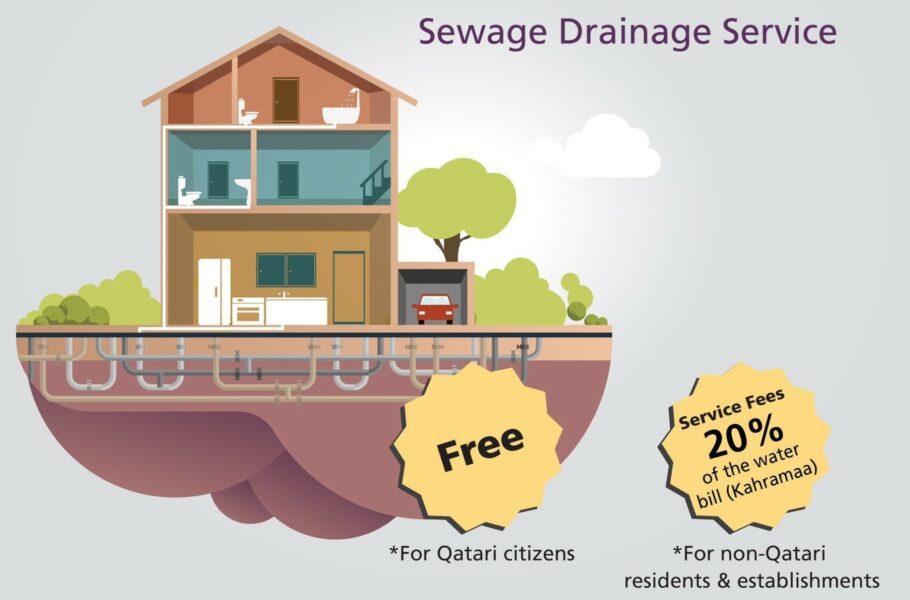
The Public Works Authority ‘Ashghal’ in a series of Tweets announced that it is cooperating with Qatar General Electricity and Water Corporation (KAHRAMAA), to start the calculation of wastewater disposal service fee equivalent to 20% of the value of monthly water bill issued by KAHRAMAA, beginning with the consumption bill for January 2021, which will be issued in February 2021.
#Ashghal is cooperating with @kahramaa, to start calculation of wastewater disposal service fee equivalent to 20% of the value of monthly water bill issued by KAHRAMAA, beginning with the consumption bill for January 2021, which will be issued in Feb. 2021 pic.twitter.com/mg6tMDIrBR
— هيئة الأشغال العامة (@AshghalQatar) December 13, 2020
Ashghal mentioned on its website that these procedures are part of implementing the Resolution (No. 211) of 2019 issued by the Ministry of Municipality and Environment determining fees for various services provided by Ashghal to establishments and individuals, as announced in January 2020.
It has also said that introducing this fee aims to improve efficiency and quality of infrastructure services provided by the government and to rationalize water consumption and preserve water resources of the state, in light of the increasing scarcity of water resources in the world.
It may be noted that major drainage network services for people include disposal of drainage water from homes and establishments of any type, connected to the drainage network.
"Service fees for homes of Qatari citizens is subject to the exemption rules followed by KAHRAMAA. As for non-Qatari residents and establishments of any kind, service fees will be calculated at 20% of the value of monthly water bill issued by KAHRAMAA. For example, if the value of water bill is 300 Qatar Riyals, then the value of wastewater charges added to the bill will be 60 Qatari Riyals only. However, if the water bill is within exempted for Qatari citizen, no additional fee for wastewater service be added", it said.
Ashghal also mentioned that it is worth noting that wastewater is transported through substations and major pumping stations to huge treatment plants, where it undergoes complex cleaning and sterilization procedures so that it can be reused for various purposes including irrigation of green areas, sand-washing, cooling and others.
Source: Ashghal
Cover image source: Ashghal
Follow us on our social media channels:
![]() @ILQlive
@ILQlive
![]() @ILQlive
@ILQlive
![]() @ILoveQtr
@ILoveQtr
![]() ILoveQatar
ILoveQatar

You have successfully registered your account!
Please confirm your e-mail address by clicking on the URL sent to you.The e-mail usually arrives in 5-10 minutes.
How ajeeb was that!? Thanks for contributing to our community! Your post will appear after we take a quick look!